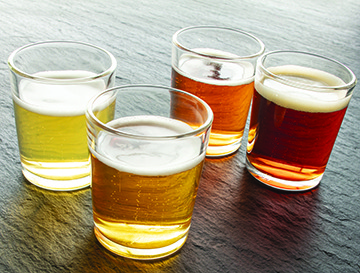Don’t miss our New England Beer & Baseball adventure in 2026! Click here to register!
Brewing Tips
Posts
-
 Article
Article
Brewing with the Wizard
Ashton Lewis has been giving homebrewers advice about brewing on their own systems for 26 years in the “Help Me, Mr. Wizard” column. Now
-
 Article
Article
More Quick Tips: Making brew day and beyond efficient
Anyone who has brewed more than a few batches of beer will often fall into certain routines, but not all of them are practical. Here are som
-
 Article
Article
Brewing Session Beers: Tips from the Pros
Two pros share their advice regarding recipe design and brewing techniques for achieving beers that are low in alcohol but high in flavor.
-
 Article
Article
Quick Pre-Brew Tips: Collective advice from fellow brewers
We can learn so much from brewing with others. Denny and Drew pulled together some groupthink tips from fellow brewers and from their own ex
-
 Article
Article
Small-Batch Brewing
Five-gallon (19-L) batches have long been the standard for homebrewers, but there are some real advantages to brewing smaller all-grain batc
-
 Article
Article
The Importance of Safety
Nobody expects to get injured while brewing, but accidents happen. Learn how to reduce potential for injuries with these seven tips.
-
 Article
Article
How Do You Brew: It speaks volumes about our advice
Homebrewers can often be classified by their approach to the hobby, whether they focus more on the gear, the recipes, the results, or simply
-
 Article
Article
Big Beers, Done Right
Get some pointers to brew the big ABV beers this cold-weather season.
-
 Article
Article
Late Hopping: Tips from the Pros
-
 Mr. Wizard
Mr. Wizard
Tips For a Quality Hazy IPA
-
 Mr. Wizard
Mr. Wizard
Trying to Gauge the Speed of Oxidation
-
 Article
Article
4 Beers from 1 Brew Day
If you don’t have time to brew often, then get the most from each brew day. Here is how to make four unique beers from one brew, with varyin
